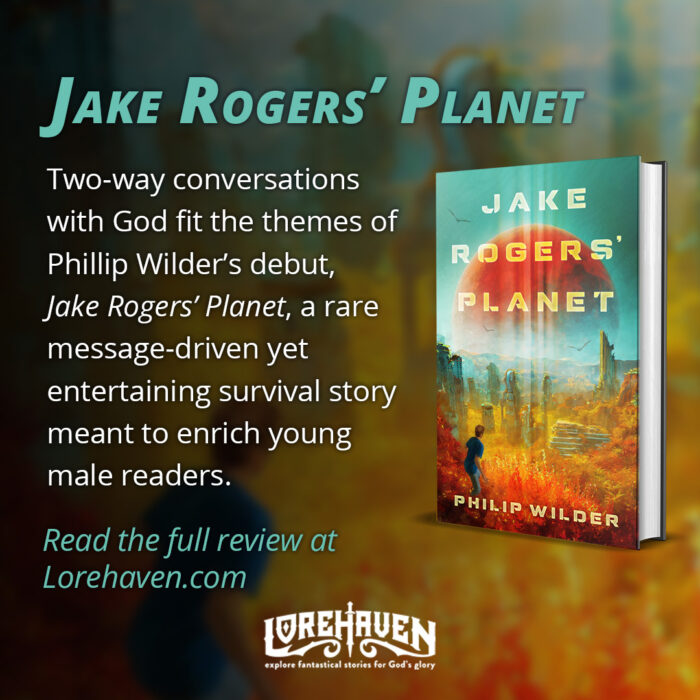50. Do Christians Really Need Fiction? | Fiction’s Chief End, part 1
Podcast: Play in new window | Download (Duration: 1:08:26 — 64.0MB) | Embed
When you reach for a novel, do you ever feel guilty for not picking up your Bible, a devotional, or missionary biography? Some question whether fiction itself is spiritually healthy. And even if novels are harmless entertainment, do we actually need them? Are they worth our time and attention, not to mention our money? Perhaps we have more important questions to ask, such as: What if God made humans to get healthier from reading stories? What if we in fact desperately need them?
We’ll look at how:
- Fiction is God’s idea.
- Fiction is personally transformative.
- Fiction creates stronger communities.
Concession stand
- Of course, we emphasize Scripture reading above any other book.
- However, we don’t address how often or when to read fiction instead of Bible-reading.
- We know not all fiction is morally good or even neutral; we still need discernment.
- We won’t speak as much about Christian-made fiction, only fiction in general.
1. Fiction is God’s idea
Fiction opens up worlds that abstract statements do not, which is why some of Jesus’ best-known statements came in connection with a fictional story or an actual event. Reading fiction can help a pastor grow in his ability to imagine the world he wants his listeners to inhabit.
—Trevin Wax
- God is a storyteller. He spoke and wrote true stories as well as fictional ones.
- Scripture’s stories include Proverbs 7, 2 Samuel 12, and Luke 15.
- Judges 9 even includes Jotham’s fantastical parable of the talking trees.
- The Bible records many visions, dreams, and prophecies.
- All these came true, yet included fictional and fantastical imagery.
Weak imaginations have always fallen before Scripture’s chief enemies: legalists, rationalists, and libertines. Orthodoxy demands imagination, and so we are just asking for serious spiritual problems if we deny the imaginative life to our children.
—Douglas Jones
- Fiction is something God intended humans to create.
- J. R. R. Tolkien said that we are “sub-creators” with God.
- We create worlds and tell stories because God has done the same.
- Fiction counts as a “good gift” from God (James 1:17).
- Fiction is not random, extraneous, or unnecessary, but core to our human experience.
I’ve found that most people who tell me that fiction is a waste of time are folks who seem to hold to a kind of sola cerebra vision of the Christian life that just doesn’t square with the Bible. The Bible doesn’t simply address man as a cognitive process but as a complex image-bearer who recognizes truth not only through categorizing syllogisms but through imagination, beauty, wonder, awe. Good fiction isn’t a “waste of time” for the same reason good music and good art aren’t wastes of time. They are rooted in an endlessly creative God who has chosen to be imaged by human beings who create. Culture isn’t irrelevant. It’s part of what God commanded us to do in the beginning, and that he declares to be good.
—Russell Moore
2. Fiction is personally transformative
Like a magic portal, a story sweeps us into another life and world and allows us to imagine and feel circumstances outside of ourselves. We walk in another’s shoes and see life from a different vantage point. And before we know it, a truth has been planted so deep within our souls that we can’t shake it. We have been both entertained and informed, and maybe even a little changed.
—Alisa Hope Wagner
- Fiction is “the lie that tells the truth.”
- Fiction awakens the moral imagination.
- Nathan didn’t preach a sermon to King David; instead, Nathan gave him an emotional experience.
- Jesus didn’t scold the Pharisees for being grumps at other people being saved, he showed them characters like them.
Why do people get caught up in events that they know cannot be real? What causes people to feel strongly about fictional characters, argue with them, and even reimagine their outcomes? Yes, scientists really study this stuff. … A story causes what psychologists call cognitive evaluation in readers. … Making us think while we read not only makes a story intriguing, but medically speaking it’s necessary for our well-being and mental health. Put simply, to be healthy we have to experience wonder. It’s one of the reasons that reading stories feels necessary. It actually is.
—from The Emotional Craft of Fiction
Fiction is the mind’s flight simulator.
—Keith Oatley, Ph.D., professor emeritus in the department of applied psychology and human development at University of Toronto
- But isn’t fiction just an escape?
- Even if this is true, books are rightful means of “escape.”
- In Tolkien’s essay On Fairy Stories, he says we shouldn’t confuse the escape of a prisoner with the flight of the deserter.
3. Fiction creates stronger communities
“Fiction, along with songwriting and personal counseling, are the most constant ways that God teaches me empathy…Almost everyone is the hero in his or her own personal narrative…Fiction helps people honestly present those internal stories that people tell themselves, things they won’t disclose in, say, a debate or a non-fiction monograph arguing for their way of life.
—Dr. Russell Moore
- Fiction helps us better understand people who are very different than us.
- Books take us inside others’ minds to “become” them and live their lives.
From an early age, C.S. Lewis had a fascination with mythology. … One of Lewis’ early objections to the Christian faith was its comparison with Paganism. … When Lewis, years later, raised this issue with Tolkien and Dyson, it led to a crucial all night conversation. … They argued that these pagan religions did contain truths and arose out of the structure of reality created by God. These pagan myths were echoes of reality and cosmic pointers to the true myth, the “Myth become Fact” in Christ. The Gospel account of Christ is the Story that fulfills these previous stories, the one difference being that the Gospel narrative is historical—a true fact.
—Dr. Art Lindsley, C. S. Lewis scholar
- Myths, legends, and stories give us shorthand for complex topics, feelings, and experiences.
My own eyes are not enough for me. I will see through those of others. Reality even seen through the eyes of many is not enough. I will see what others have invented. … Literary experience heals the wound, with- out undermining the privilege of individuality. … In reading great literature I become a thousand men and yet remain myself.
—C. S. Lewis
- We live in a hyper-individualized society, and some of that is unbiblical.
- It’s best if we can enjoy fiction with other believers. We are part of a Body.
- So enjoy novels Christianly by inviting other believers to read them with you.
The biblical pattern in expressing God’s love and redemptive purposes was approximately seventy-five percent story, fifteen percent poetry, and ten percent instructional and didactic in nature; ninety percent appealed to the imagination! At a time when our world has become more visually and image driven, the Church has reversed this biblical pattern. Today, only ten percent of the way we express the transforming narrative of the gospel is creative and imaginative. If the Church is to fulfill the purposes of God for this generation, there must be a recovery of the imagination, both in the Church and the culture.
—Colin Harbinson
- Novels are great ways to build bridges with your neighbors.
- Start a book club or just engage in discussion around books you have in common.
Fantastic fans
Elizabeth writes about episode 49:
I’d love to be part of a book club, simply because it opens up more of the book for me. It can make it exciting and interesting, like discussing a movie or TV series I’ve just watched. It can bring about thoughts/perspectives I hadn’t considered. Also, I’d prefer book clubs with more SciFi and monsters. Would being part of a fantasy book club help develop a love for fantasy that I don’t entirely have (aside from LotR and Narnia)? It would be interesting to find out.
Next on Fantastical Truth
We’ve explored the biblical need for fiction as part of our daily lives. However, we could stop there and presume that we only need “realistic” stories such as historical or contemporary fiction. We’ll explore how Christian readers also benefit from fantasy stories, so much that we could say we need stories about fantastical other worlds.





































Share your thoughts about this podcast episode